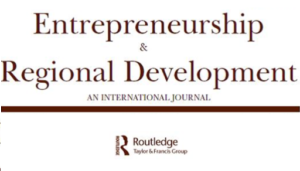Episode 100 – Shireen Kanji – Gendered transitions to self-employment and business ownership: a linked-lives perspective
We apply the sociological lens of linked lives to show how household contexts channel transitions to self-employment in ways strongly differentiated by gender. We investigate the impact of demographic transitions to marriage, cohabitation and having children on the transition to self-employment using fixed-effects models on 10 waves of the UK’s nationally representative survey, Understanding Society….
Read More
